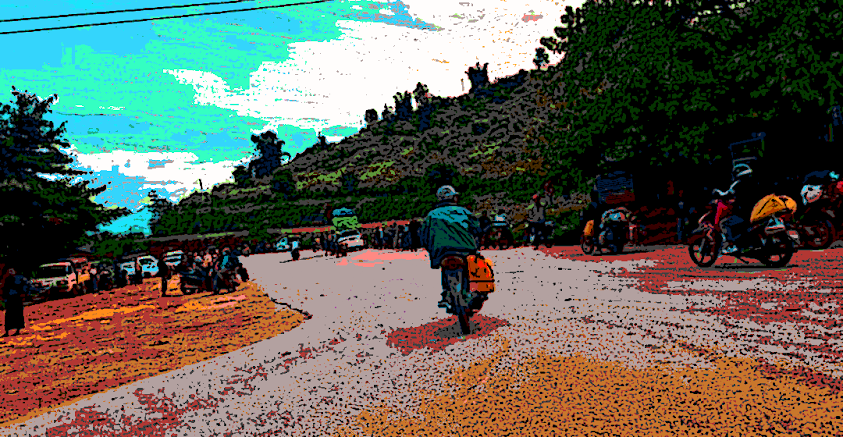Myanmar Spring Chronicle – February 8 by MoeMaKa Media:
Taxation Strains on the Public Amidst Conflict
In a recent report dated today by the Shwe Phee Myay news agency, a concerning aspect of the ongoing conflict in Northern Shan State has come to light, shedding light on the additional burden faced by the public due to annual taxes levied by ethnic armed forces.
The report outlines the presence of checkpoints belonging to the Ta’ang Army, Kachin Army, and SSPP/SSA along the Lashio-Namtu-Namhkam-Muse route. According to the account of drivers from Northern Shan, these armed groups collect taxes from vehicles passing through the route, necessitating payments for each car on top of the annual wheel tax. The situation is further complicated by varying rates and irregularities in the tax collection process, with some armed groups charging more than others.
The drivers, both private and those transporting goods, find themselves in a challenging predicament as they traverse the route, encountering toll gates from three different armed groups. The tolls are not standardized, with private cars required to pay a minimum of 20,000 kyats at each gate, while vehicles transporting goods face charges ranging from 40,000 to hundreds of thousands of kyats.
While it is a common practice for armed organizations to collect taxes from local communities within their controlled territories to fund their operations, this situation raises several concerns. The intertwining of territorial sovereignties often results in communities paying taxes to multiple armed groups, adding complexity to an already delicate scenario. Furthermore, the lack of standardized tax rates and consideration for the financial capabilities of local residents exacerbates the burden on the community.
In the context of a civil war, where homes, property, and livelihoods are disrupted, the financial needs of armed groups may escalate, making it challenging to reduce or nullify taxes. Beyond tolls on travel routes, armed groups also generate income through taxes on property, business operations, and illicit activities like opium cultivation, drug trade, and gambling.
The intricate relationship between armed groups and various illegal activities has evolved with the emergence of modern communication technologies. While Shan State has a long history of opium production, the contemporary scenario sees armed groups engaged in diverse revenue streams, including involvement with drug trade, gambling, and online money fraud gangs.
Apart from the economic toll, local communities bear the brunt of wars, armed groups, taxes imposed by ruling authorities, and the recruitment of new individuals by armed groups. In the post-February 1, 2021 era, People’s Defense Force (PDF) groups without territorial sovereignty rely on public assistance, operating on voluntary contributions. This approach encourages political participation but raises uncertainty about the potential funds collected on a monthly or annual basis.
Amid the desire for a swift end to the armed revolution, it is crucial for armed organizations to be mindful of the burdens borne by rural communities and the daily struggles of families for their livelihoods. Public support should not be exploited, with the understanding that the community participates in the revolution and makes sacrifices. Striking a balance between the needs of armed groups and the well-being of the public is essential for sustaining the resilience of communities amidst ongoing conflict.

